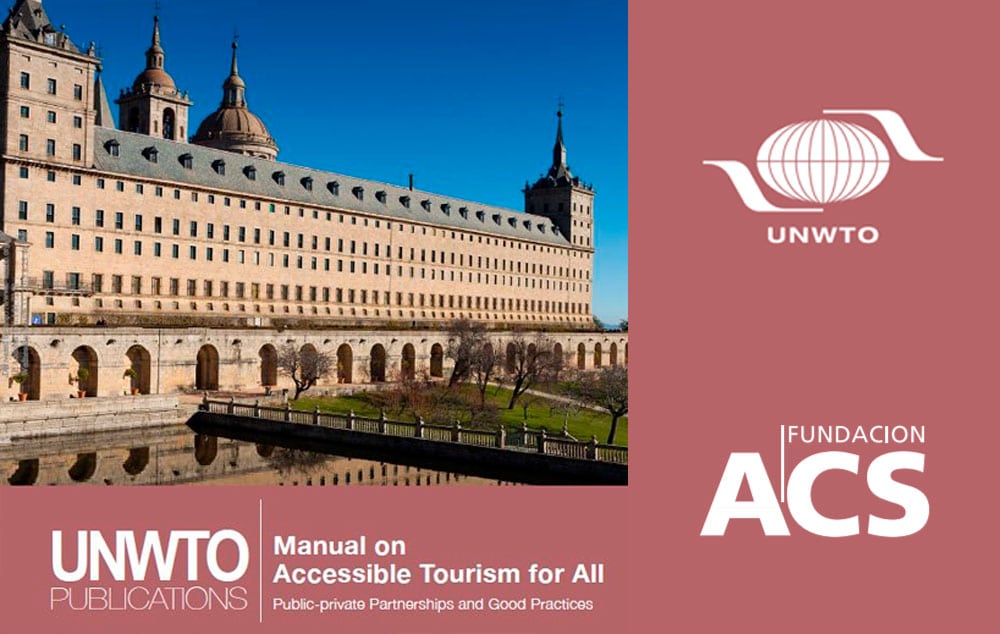The United Nations World Tourism Organisation’s (UNWTO) Manual on Accessible Tourism for All: Public-Private Alliances and Good Practices has just been published. It is the first publication of a technical nature produced by the UNWTO in collaboration with the Spanish ACS Foundation. The Manual highlights the value of accessible heritage and cultural resources and provides the necessary technical knowledge for making built and natural tourism environments accessible within the framework of public-private alliances.
The 284-page manual covers such aspects as an overview of Tourism for All (TfA), public-private partnerships, an analysis of good practice, accessibility in architectural heritage, historic and tourist cities in Spain, access in historic European city centres, parks, and gardens, access in natural surroundings and transport, training, sports activities, and accessibility and international cooperation. The manual has an extensive list of references and links to accessibility information.
The report points out that people with disabilities make up a significant part of the world’s population, and that their number is on the rise due to the ageing trend being observed in certain regions, because disability increases with age. The report goes on to say that The World Health Organization estimated that in 2011, there were approximately one billion people with disabilities in the world, that is, 15% of the total population. They also constitute an emerging segment in terms of tourism demand. There is wide consensus that this demand is growing and is multi-customer, since each person with disability tends to be accompanied. The disabilities market is also an image-booster for a destination, could help solve issues of seasonality – especially with regard to beach tourism, and is capable of generating higher income than the average for conventional tourism.
The ACS Foundation is a private non-profit institution with a mandate to act as the channel for all social action undertaken by the business corporation Grupo ACS. It enters into agreements with Spanish and international institutions to launch and support projects and training and also research activities related to the restoration of historic heritage, environmental conservation and the removal of barriers to improve the quality of life of persons with disabilities or in a situation of dependence, and tourism for all.
Source: World Tourism Organization



